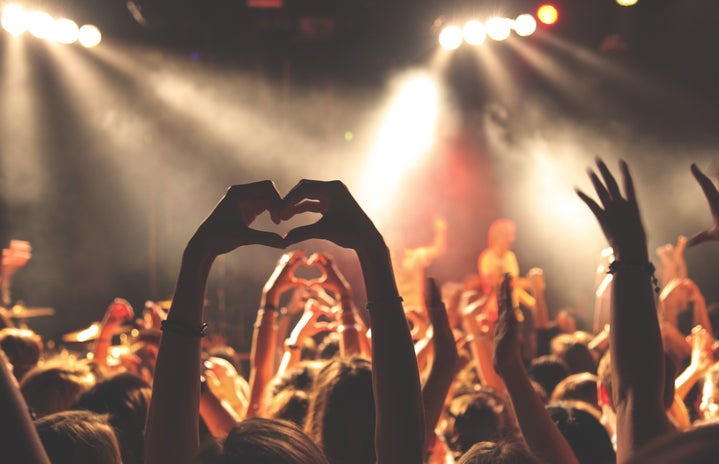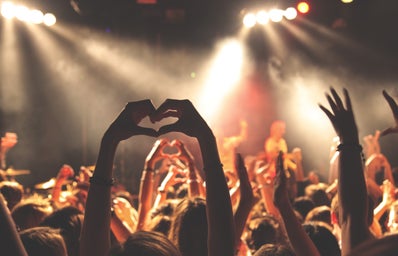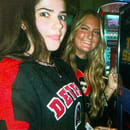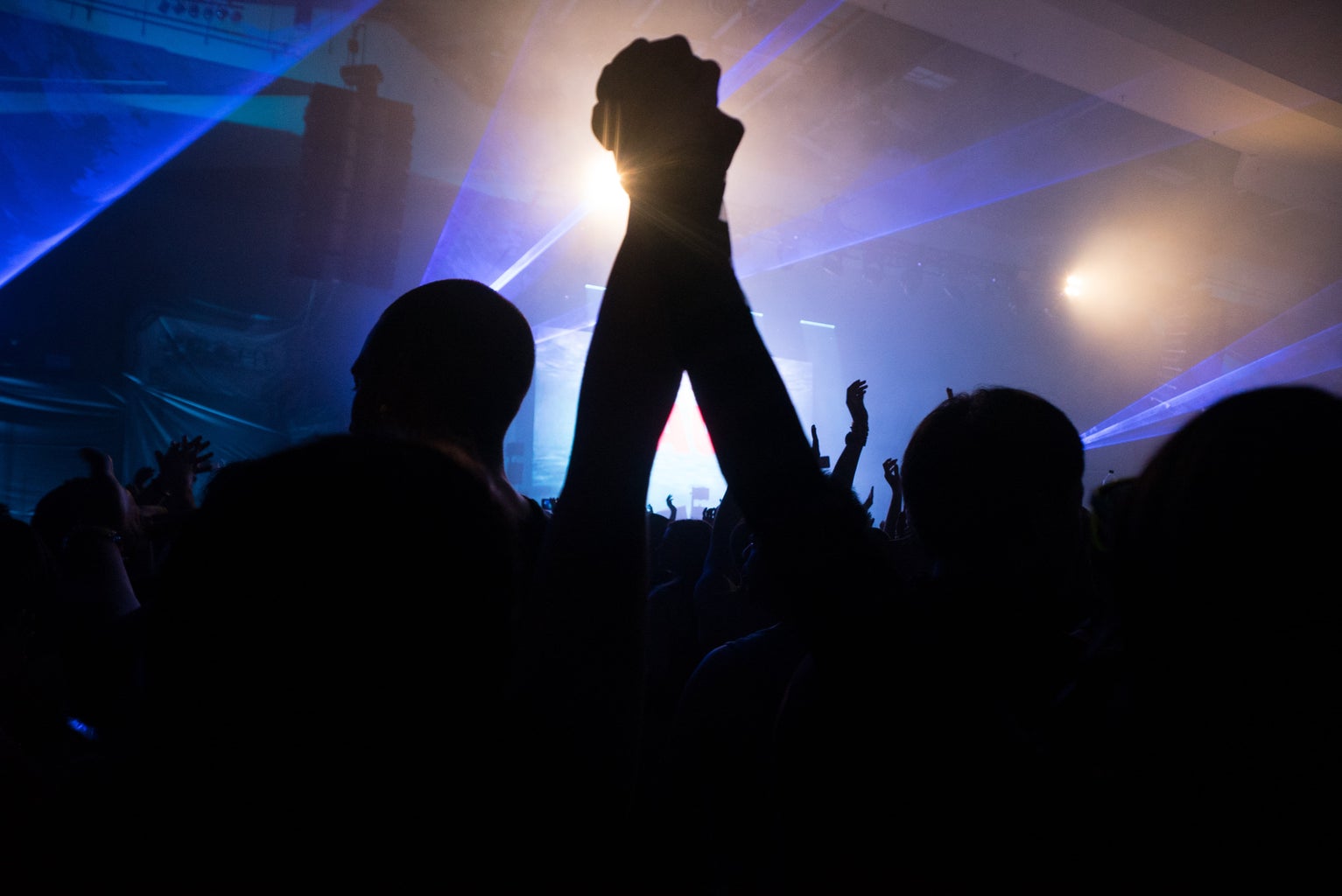I was a bit older when I went to my first concert. On the brink of convincing my parents to let me go to my first when I was 15, 2020 crushed those hopes, and concerts as a whole were crossed out with a big X. This ended up changing concerts as we knew them.
For my first concert, I was freshly eighteen years old and in the city of Philadelphia for the first time. I saw Rex Orange County – one of my favorite artists since age thirteen– with two of my best friends. I was happy that this was my first concert, and I was also nervous. It was my first concert ever, after all.
My two companions were seasoned concert-goers, so I knew I had nothing to worry about. They insisted we get there early, so we could get a good spot in the crowd. The venue was the skyline stage at the Mann Center. It was general admission, with one giant crowd around the stage. The stage was at the top of a hill that overlooked the Philly skyline.
Entering the venue was a fight; I had to hold onto my one friend for dear life, trying not to get separated. I got yelled at by someone for “cutting in front of them”, when in reality, I was just with my friends – who had my ticket.
It was a moderately hot May evening, and once we got into the crowd, many were showing signs of the heat. A group of girls next to me had one of their friends pass out from heat exhaustion right onto my legs. We waved for help, and their friends refused to follow her with the medic. In the name of not losing their ‘good view’.
Despite the first signs of struggle, I was ecstatic for the show to start. And when the show did start, people rushed towards the front and separated my friends and I. We were separated by one group of people, so between songs, we asked if they could move over so I could stand with my friends. In return, they declined in the name of having a view a few inches closer.
I was with my friends eventually but spent most of the time distanced from them. Towards the end of the show, the artist threw out a guitar pick that ended up hitting my shoe. Before I could look down, I had a swarm of people almost knock me over to get the pick – all in the name of wanting to feel special.
I thought that was the way concerts were supposed to be. I thought that a spot in the front was because of the pushing and shoving you did in the line to enter the venue. I thought you were supposed to be in your own bubble – listening by yourself.
I then learned what concert etiquette was.
Concert etiquette, more simply put, revolves around the respect of others and the artist at a concert. Many concert-goers have recently been disrespecting the basic rules of respect at concerts.
Just last week, Death Grips had to cancel their show mid-set because of the lack of concert etiquette. People consistently launched glowsticks and even a phone onto the stage throughout the set.
Last year, Steve Lacy went on his first tour following his influx of TikTok popularity. Concert attendants were unwaveringly rude: talking during the opening artist, screaming too loud during the songs themselves, and throwing items on stage – all in the name of the artist noticing them.
But where did these issues come from? Concert etiquette seemed to take its decline following COVID – younger people started to attend concerts without learning from others about how to behave.
During the lockdown, we were closer than ever to our favorite artists – they were at home just like us. Smaller artists were having concerts live on Instagram and Facebook, trying to give their fans some sort of piece of them before we could get back to normal. They were quicker to interact with fans on social media, responding to comments and fan art in a way they normally wouldn’t. Here, artists created a false sense of intimacy that couldn’t be sustained.
So when we finally were back in the swing of things for live events, people expected the same type of interaction.
Post-COVID concerts involve a lot of screaming in the middle of songs, waving around signs because “IT’S MY BIRTHDAY AND I NEED YOU TO SAY HAPPY BIRTHDAY TO ME!” and throwing personal items on stage; this way, they could have the satisfaction of their favorite artists having something of theirs. The expectation of COVID-19 intimacy was still there, yet artists couldn’t give that kind of attention at a sold-out venue.
With all of this considered, what can we do to fix unbearable concert crowds? The only thing you can do is to practice good concert etiquette yourself and teach others how to do the same.
Practicing concert etiquette is actually quite simple.
When at a concert, DON’T be that person.
- Don’t push someone to get to your seat, or to a better spot.
- Don’t hold up a large sign blocking the people behind you. Chances are, the artist probably won’t see it. Just enjoy the show!
- Don’t record the entire show. It’s okay to record your favorite songs, but don’t watch the concert through your phone screen – live in the moment!
- Don’t scream while the artist is talking – think before you shout. You wouldn’t do it in normal conversation, would you?
When at a concert, DO:
- Be respectful of others’ space. Give people room to breathe.
- Make friends with those around you. You already have a common interest, why not make a new friend?
- Sing and dance along! What fun is a concert if you don’t know any of the words? Energy is everything at a live show. Artists want to see you singing and dancing along, not the back of your phone.
Concerts are supposed to be a fun and safe environment for everyone involved. Together, we can help make concerts the way they used to be.



